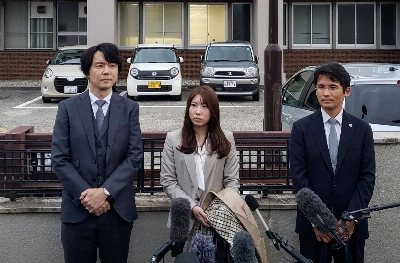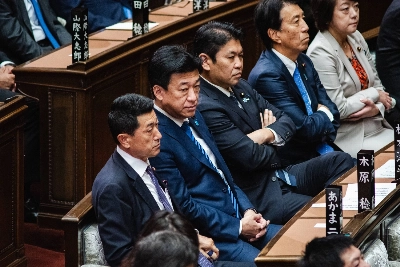The volume of bank lending fell in November to a new low for the second consecutive month, as major banks remain focused on writing off past loans gone bad and large corporations continue to write down debt instead of borrowing new funds.
According to a Bank of Japan survey released Monday, average outstanding loans at the nation's banks fell 5 percent year-on-year to 395.45 trillion yen. It was the lowest level on record, which the central bank began tallying in 1991.
It's going to be a long time before banks manage to make good on their pledges to increase lending, while simultaneously strengthening their finances, analysts said.
"Sound lending implies raising interest rates to better match risk," said Takehiro Sato, economist at Morgan Stanley. "Banks are trying but remain largely unsuccessful."
Hiking interest rates is difficult for two reasons.
First, government-affiliated financial institutions offer lower interest rates on loans and consistently undercut private-sector banks.
Second, banks tend to hike rates on loans to shaky small and medium-size companies, and that goes against what is widely perceived to be banks' social duties to help such companies.
Large banks brought the aggregate lending figures for November down. Average outstanding loans dropped 8.1 percent year-on-year at the major banks -- called city banks -- to 222.84 trillion yen.
Loans from large regional banks saw a 0.4 percent gain to 131.52 trillion yen, while second-tier regional banks' lending fell 4.3 percent year-on-year to 41.95 trillion yen. Foreign banks saw a 13 percent fall in lending to 6.16 trillion yen.
Major banks are under pressure to halve the levels of their bad loans by March 2005, while simultaneously meeting regulatory capital levels.


















With your current subscription plan you can comment on stories. However, before writing your first comment, please create a display name in the Profile section of your subscriber account page.